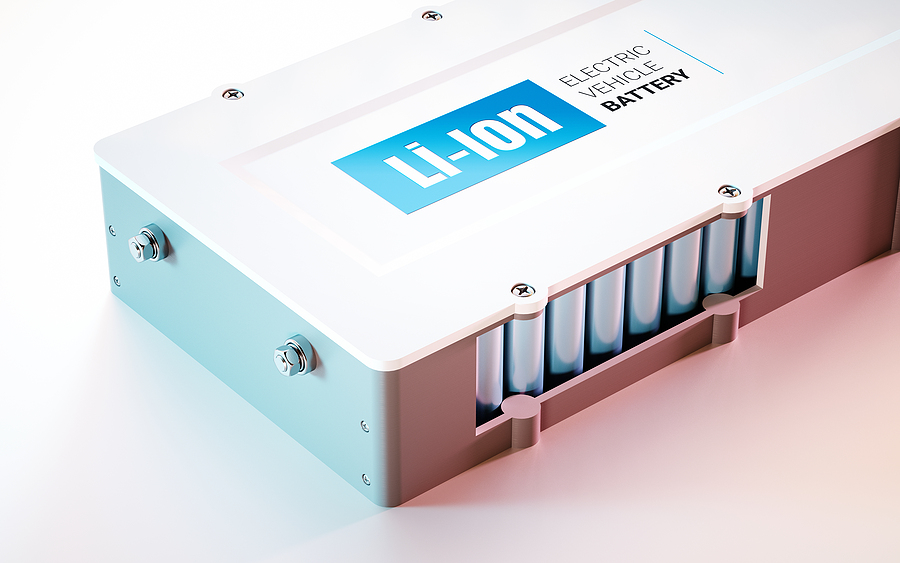
Charged Up: The Evolution of Battery Technology for Electric Vehicles
Electric vehicles (EVs) have become more mainstream in today’s automotive industry, and the next few decades will see automakers electrifying their lineups and emphasizing emission-free cars. Some consumers hesitate to drive EVs because of their battery range, so how will auto manufacturers improve these critical devices? Here’s how far battery technology has come and what to expect in the future.
How Far Has Battery Technology Come for EVs?
The first EVs hit the road in the late 19th century, as inventors used primitive technology to power their machines. One of the first EVs came from Gustave Trouvé, who used a rechargeable battery to power a tricycle in 1880. By 1888, German engineer Andreas Flocken invented the first four-wheel electric car using a motor with about 1 horsepower. While it could only drive 9 mph, Flocken’s machine would be inspirational.
Modern EV batteries date back to 1997 with the EV1 from General Motors (GM). This vehicle didn’t last long on the market — as GM destroyed most of the cars — but its battery technology was critical for future machines. The EV1 used lead-acid batteries and had a range of about 74 miles before needing a charge. Nickel-metal hydride batteries doubled the range to 150 miles thanks to increased efficiency.
These batteries seem primitive by modern standards but were critical for the time and the evolution of battery technology. The inventions set up EVs to have improved technology for today’s EV revolution.
What EV Battery Technology Is Available Today?
Auto manufacturers transitioned from lead-acid to lithium-ion batteries in the 2010s, following Tesla’s success with the Roadster in 2008. The California-based EV manufacturer was the first to use these advanced devices in a car, with each system containing 6,831 lithium-ion cells for increased efficiency.
The Roadster could travel 200 miles on a single charge, giving consumers hope that manufacturers could produce efficient EV batteries and compete with gas-powered cars. Tesla’s innovation led to the Nissan Leaf, the Renault Fluence Z.E. and other mass-produced EVs utilizing advanced technologies.
This decade, EVs have improved their range and become more palatable for consumers needing reliable machines. While electric cars occupy a small market share now, experts say EVs will constitute 45% of new car sales by 2035 — signaling a significant shift in the automotive industry.
Most modern EVs still use lithium-ion batteries because they’re the most efficient mainstream option. However, researchers have found ways to improve battery technology and make electric cars more efficient.
What Does the Future Hold for Battery Technology?
EV demand has slightly slipped after a successful run in the late 2010s and early 2020s. Multiple automakers have announced they are pushing back EV production timelines because consumer desire has dropped. How can automakers pull customers back into buying EVs?
Making batteries more efficient to compete with gas-powered cars is a crucial first step. Additionally, manufacturers must produce more sustainable batteries to comply with environmental, social and governance (ESG) policies. Here are a few innovations on the horizon to improve EV battery technology.
Sodium-Ion
Sodium-ion (Na-ion) batteries are an emerging favorite for lithium-ion alternatives because they cost less and are currently in production in some countries. The International Energy Agency (IEA) says China plans to reach 30 production plants for creating Na-ion batteries, and it won’t be long before this technology spreads worldwide.
Na-ion batteries are advantageous because they contain no lithium, an expensive material for EV production. This alternative is cheaper and more accessible for the average EV driver. Using a Na-ion battery also brings advantages like faster charging and a reduced risk of overheating.
Cobalt-Free
Some question the sustainability of EV batteries, considering their use of cobalt. Much of the world imports this metal from the Democratic Republic of the Congo, where workers suffer adverse working conditions. Mining cobalt leads to polluted water and toxic effluents for the employees and surrounding communities.
These controversies have led researchers to develop cobalt-free batteries and boost sustainability. For instance, the University of Texas-Austin has created a battery using 89% nickel, with manganese and aluminum constituting the other elements. These cobalt-free batteries are less expensive and more energy-dense, making them a popular alternative for future developers.
Solid-State
EV batteries can be a liability in extreme hot and cold because the device must work harder to power the car. Using lithium-ion batteries means the liquid electrolyte solution is vulnerable to weather, so how can manufacturers remedy the problem? Solid-state batteries require no liquid or gas in their composition, making them a more stable alternative to lithium-ion devices. Removing liquid also means a reduced chance of leaks under the hood.
Solid-state batteries have existed for a while, but manufacturers like Toyota have improved them thanks to sulfide superionic conductors and other innovations. These batteries aren’t available in current vehicles, but reports say Toyota will implement them for commercial use by 2027. However, timelines could shift due to the supply chain and new research.
Advancing Battery Technology for EVs
Automakers are leaning into EVs to reduce emissions and meet sustainability goals. While technology has evolved, batteries have been an obstacle for consumers due to their perceived lack of range and reliability. Lithium-ion batteries have made EVs more efficient, and more innovations will arrive to boost range and safety.
*This article is written by Jack Shaw. Jack is a seasoned automotive industry writer with over six years of experience. As the senior writer for Modded, he combines his passion for vehicles, manufacturing and technology with his expertise to deliver engaging content that resonates with enthusiasts worldwide.





